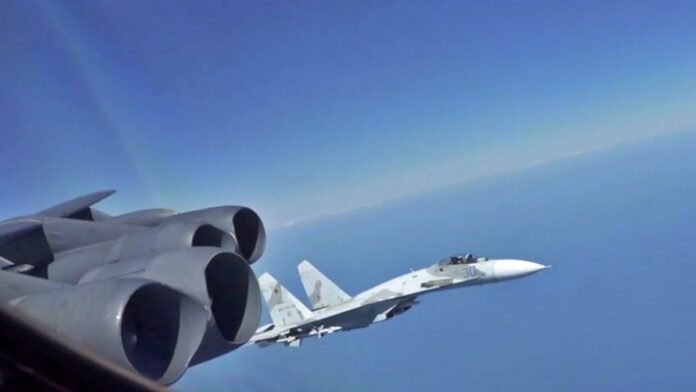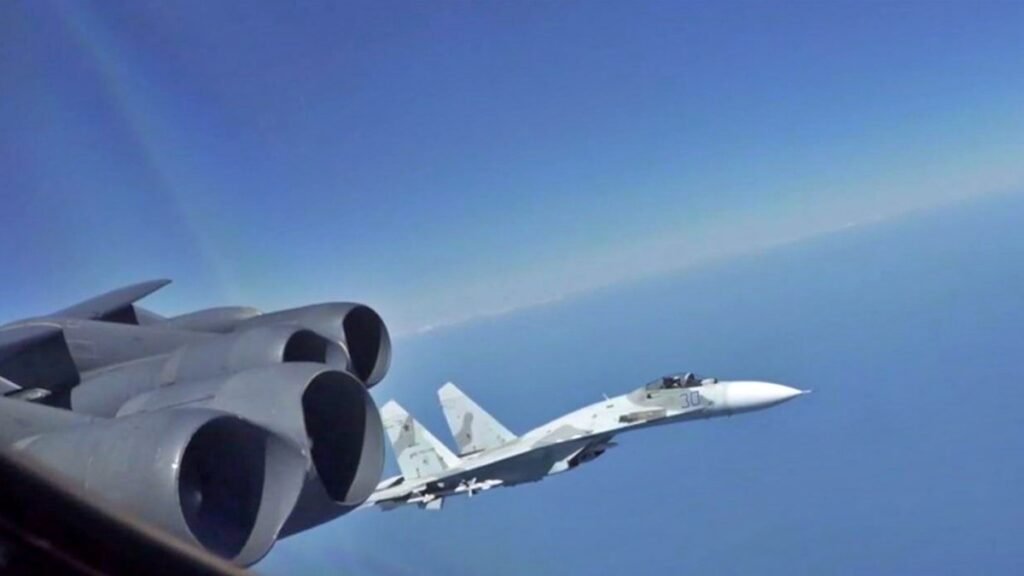
Washington: Russia pilots have tried to dogfight US jets over Syria, in one of the several recent attempts of aggressive behaviors from Moscow pilots, a report has said.
The Russian pilots didn’t appear to be trying to shoot down American jets, but they may be trying to “provoke” the US and “draw us into an international incident,” a report in CNN quoted a US official.
Armed Russian warplanes have been acting in hostile ways since March 1 which has led US military officials concerned about the possibilities for miscalculation and escalation.
Dogfighting, in military aviation, is engaging in aerial combat, often at very close ranges. However, this is not the first instance where Russian pilots have shown aggressive behavior while patrolling in the air.
A video from April 2 shows a Russian SU-35 fighter jet conducting an “unsafe and unprofessional” intercept of a US F-16 fighter jet. Another video from April 18 shows a Russian jet violating the coalition airspace and coming within 2,000 feet of a US aircraft.
The American pilots have been cautioned by officers not to engage with the Russians. The US and Russia have, for several years, used a deconfliction line between the two militaries in Syria to avoid an encounter that could lead to escalation.
The report said that the US officials reached out to their Russian counterparts over the incidents and the Russians have responded, but “never in a way that acknowledges the incident.”

According to officials, Russian jets have violated deconfliction protocols 85 times since March, including flying too close to coalition bases and failing to reach out on the de-confliction line. The US has around 900 service members in Syria as part of the ongoing campaign to defeat ISIS.
Earlier in March, a Russian SU-27 fighter jet collided with a US MQ-9 Reaper drone in international airspace over the Black Sea, resulting in damage to the drone’s propellor, forcing it down in the water.
“It’s concerning because it increases the risk of miscalculation, and given incidents like the MQ-9 intercept and subsequent downing over the Black Sea, it’s not the kind of behavior I’d expect out of a professional Air Force,” Lt. Gen. Alexus Grynkewich, the commander of US Air Force Central Command, said in a statement earlier this month.



















































